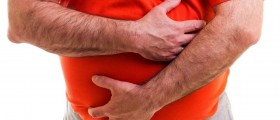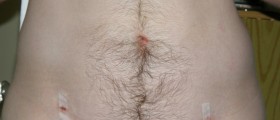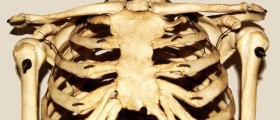
Indigestion and symptoms that help in recognizing it
Indigestion or dyspepsia is a condition that is characterized mostly by feeling of fullness while eating, which becomes even more uncomfortable after a meal and which is very likely accompanied by pain and burning sensation in the upper part of the abdomen. Nausea and bloating may also be present, as well as heartburn, but the fact is that mild cases are not a reason for concern. However, if the symptoms are present for more than 2 weeks, if pain becomes more severe, if vomiting, signs of jaundice, loss of weight and appetite are present, the doctor should be contacted. Shortness of breath and pain in the chest that may radiate to the arm, neck or jaw indicate that immediate medical attention is more than necessary. Indigestion is a rather common problem of a great number of people, including children, but the symptoms tend to differ from case to case. Various problems of the digestive tract may have indigestion as one of the symptoms, but the fact is that there are cases in which the cause of it cannot be identified.
How to deal with indigestion?
Besides physical examination, to find the cause, the doctor inquires about the symptoms that the patient feels, then checks medical history, and in some cases requires upper endoscopy, abdominal ultrasound, CT scan of the abdomen, or X-rays of the stomach, esophagus or small intestine. Once the cause has been determined, the treatment is the next step. Besides serious changes in eating habits, which usually consist of avoiding spicy, greasy and fatty foods, as well as excessive consumption of alcohol, caffeine, and carbonated beverages, there are medications that reduce stomach acid and aid in moving the food to the small intestine. These medications are antacids, H-2 receptor antagonists, prokinetics and those that are known as proton pump inhibitors. Antibiotics may be suggested in cases when peptic ulcer is caused by bacteria, while antidepressants may also be prescribed in somecases.
It is also desirable to maintain a healthy weight, eat smaller portions and have at least five meals a day, quit smoking and begin with exercising. Most people find these measures helpful enough and they do not need any medications. Alternative medicine offers various psychological methods, relaxation techniques and hypnotherapy as ways to relieve the symptoms, while drinking herbal tea with peppermint may also help in mildercases.
















Your thoughts on this
Loading...